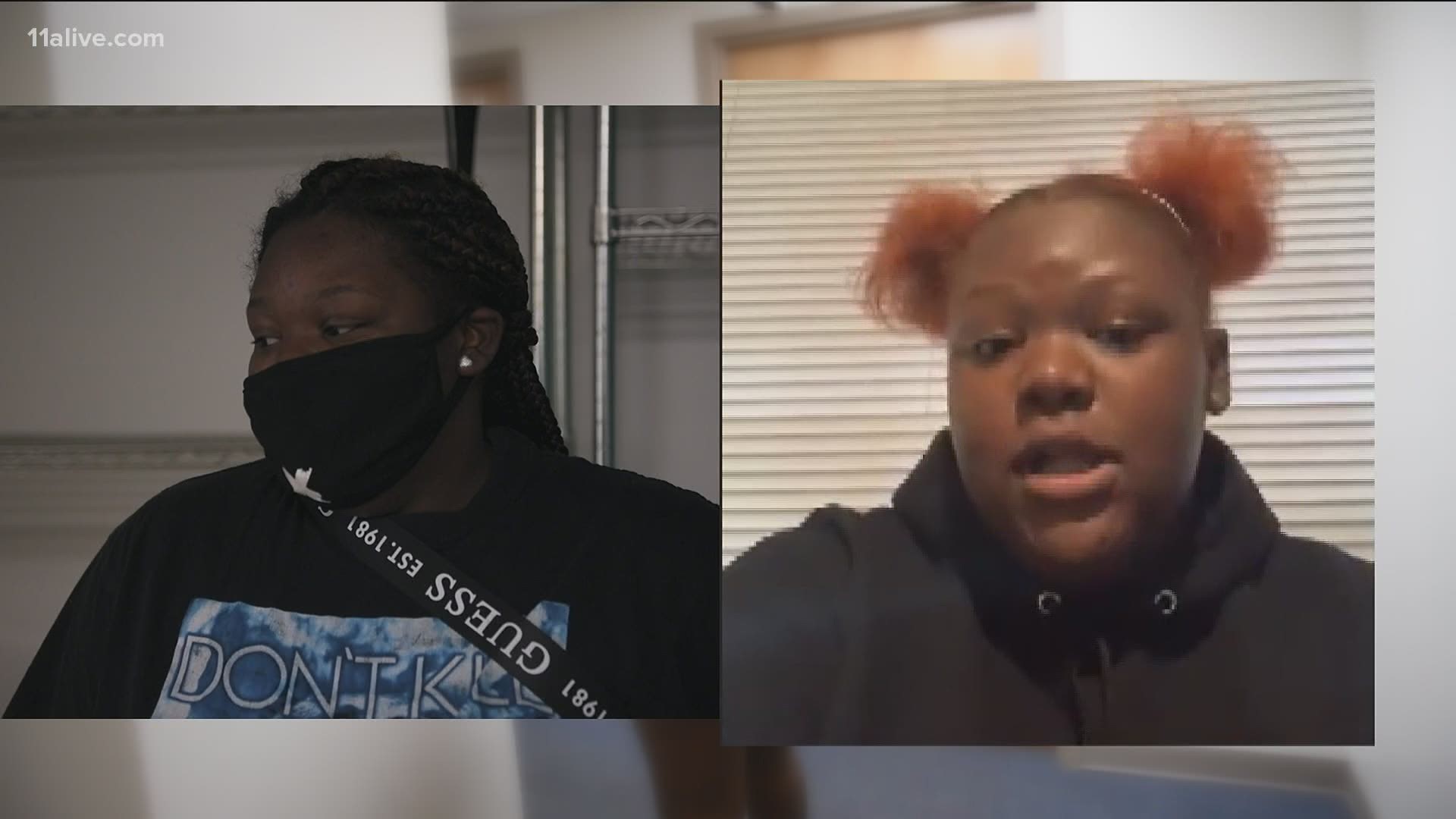ATLANTA — Amari Toomer started her senior year at Carver High, with what she believed to be a solid plan.
“I knew exactly what I was going to do, I was going to work my entire senior year and save up $400 a month and have that for school,” said Toomer.
The 18-year-old would apply to Howard and Albany State Universities, hoping for a scholarship, so she could head into the next chapter of her life.
Then came COVID. Toomer lost her job at the beginning of 2020 and found it difficult to get a job during the pandemic. Soon, she started to realize her dreams were fading.
“I knew that was going to be a struggle for me and I knew it’s going to be a struggle for people who did go to university. How am I going to survive while I’m here?” Toomer asked. “I can’t just rely on my parents cause they still have to take care of my little brother and pay their own bills.”
Couple the tough decision of figuring how to afford school with her high school moving to virtual learning, Toomer lost her motivation to continue with her education. She had a difficult time with virtual learning and almost gave up altogether.
Millions of teenagers and college students face job and health concerns along with financial strains as the fall semester starts.
According to a study from StudentLoanHero, 22 percent of college students will either transfer to a school closer to home, won’t go at all, or remain unsure about their plans. Nearly half of all students are worried about finding a job during the fall semester.
And locally, in metro Atlanta, the non-profit CARE, is finding food insecurity is playing a part in keeping teenagers from graduating high school at all.
“A lot of households are having their earning and their income sources interrupted by the pandemic and because of that it’s forcing some difficult decisions for all members of the family,” said Ryan Shepard, Executive Director CARE Global Innovation Hub.
According to CARE, food-insecure children and teenagers have been shown to miss school more frequently and are more likely to repeat a grade. In addition, food insecurity has been shown to reduce a child’s chances of graduating from high school.
To combat the issue, CARE is handing out more than 100,000 CARE meal packages for families and students. The non-profit also teamed up with other metro Atlanta organizations to help families with mental health and job resources.
Toomer said she was lucky to have a family who remained stable enough to pay their bills and provide food for their family. However, she still struggled to figure out how to afford college.
In the last few weeks of her senior year, she decided to recommit and find another way. She graduated high school and applied to Atlanta Technical College, since it was closer to home. She plans to major in business management and will start on August 20, one day after she starts her new job with Amazon.
Toomer said she knows many other teens might face the same decision and struggles, but she encourages them to find a plan B.
“Just keep going, adapting to this new normal and learning how to stay motivated and not folding under pressure.”
To learn more about CARE and their initiatives to help food insecure families and their partners, visit its website.

